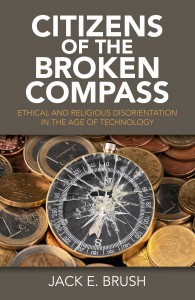
 “Life, liberty and the pursuit of happiness”—this is without doubt one of the best-known
phrases in American history. It is probably safe to assume that almost every American knows the phrase, although many may not be sure whether it appears in the Declaration of Independence, in the
body of the Constitution or in the Amendments to the Constitution, that is, the Bill of Rights.
“Life, liberty and the pursuit of happiness”—this is without doubt one of the best-known
phrases in American history. It is probably safe to assume that almost every American knows the phrase, although many may not be sure whether it appears in the Declaration of Independence, in the
body of the Constitution or in the Amendments to the Constitution, that is, the Bill of Rights.
If these rights are being denied, the individual has the additional right to respond in whatever way necessary in order to ensure that these rights are respected. As we shall see, these two characteristics of human rights, namely that they apply to individuals and that they legitimize action, can lead under certain circumstances to apparently unresolvable contradictions. When the rights of Mr Smith conflict with the rights of Ms Jones, the matter of human rights ceases to be simply a moral issue and becomes very often a legal dispute. Or to take a more specific case: When the rights of the unborn baby conflict with the rights of the expectant mother, how do we pass moral judgment? Given the central role of the concept of human rights in contemporary moral and legal thought, it seems to me that it is worth investigating the origin of the notion. When did the notion of a “human right” first appear and in what context? Furthermore, what were the factors that contributed to its development into an international concept?
The statement in the Declaration of Independence about life, liberty and the pursuit of happiness is very similar to a statement written about one hundred years earlier in England by John Locke. In his Two Treatises of Government, published in 1690, Locke writes: “The State of Nature has a Law of Nature to govern it, which obliges every one: And Reason, which is that Law, teaches all Mankind, who will consult it, that being all equal and independent, no one ought to harm another in his Life, Health, Liberty, or Possessions.” The mention of “possessions” is particularly interesting because it occurs also in the US Bill of Rights; in Amendment V to the Constitution we read: nor shall any person “be deprived of life, liberty, or property, without due process of law…” The fact that property is mentioned in the Bill of Rights instead of the pursuit of happiness may indicate more clearly a conscious reliance on the philosophy of John Locke. In any case, we can establish without doubt that the idea of human rights did not originate in the United States; its roots go back at least to seventeenth-century England. Since then, the concept has not only been adopted in the US, but it has also attained international recognition. Following the atrocities of the Second World War, the General Assembly of the United Nations adopted on 10 December 1948 the Universal Declaration of Human Rights. Yet, the question remains: What was the origin of the concept of human rights?
It is well known that the Greek philosophers, notably Plato and Aristotle, were intensely interested in the concept of “justice” or “right”; they did not, however, develop the concept of “human rights” in the modern sense. If we look for the historical roots of the idea of human rights, we will discover that the notion grew out of Hellenistic philosophy of the third century BC, specifically out of the philosophy of the Stoics. Nevertheless, the differences between the Stoic idea of “right” and our idea of “rights” are striking. According to the Stoics, the entire cosmos is permeated by an eternal moral law that guarantees justice. The Stoics spoke about the natural law (lex naturalis) or natural right (ius naturale) that guided the actions of human beings, and those individuals who lived in accordance with natural right were said to be virtuous, that is, morally good. One of our best sources for Stoic philosophy is Cicero, and in his writing entitled On the Laws (De legibus), he has an extended section on natural law or natural right. Before any law was written and before any state was constituted, there was the highest law of the universe, a force of nature (vis naturae), which commands that certain things be done and prohibits that other things be done. This law is the highest reason; it is rooted in nature; and it is perfected in the minds of human beings. It is precisely this eternal law that distinguishes between right and wrong, between justice and injustice. Although the highest law is everywhere to be found in nature, human beings have a privileged position in the search for it because this eternal law is identical with right reason. Following the dictates of right reason is obedience to the law of natural right.
Cicero notes further that right reason or the law of natural right in the universe binds all human beings together so that the entire universe can be considered as a common state (civitas). We as human beings are born with a sense of natural right and wrong, and therefore to be truly human, we must exercise justice in relating to each other. We are prone by nature to love our fellow human beings, and anyone who denies justice to another person destroys something within himself. That is, the punishment for non-compliance with natural right is self-estrangement. In summary, the Stoic idea of natural right was cosmic, rather than individual. To be sure, natural right motivated a person to action—not, however, in the sense of insisting on one’s own rights, but rather in the sense of obligating one to act in a certain way. Natural right was not a claimed right, but rather an obligating right. It was not a purely subjective possession of the individual, but rather an objective order of the universe governing the individual’s conduct.
Those of you who are familiar with the Christian tradition may recognize some of these thoughts from the writings of the Apostle Paul. In his letter to the church at Rome, Paul utilizes some of the Stoic ideas about natural right in order to demonstrate that human beings as such understand the moral demands of the law. He writes: “When Gentiles who have not the law do by nature what the law requires, they are a law to themselves, even though they do not have the law. They show that what the law requires is written on their hearts…” (Romans 2.14–15). Mediated through Paul, the notion of an eternal, unwritten law, that is, the concept of natural right, became a part of Christian thought from the Patristic period of the second century through the classic formulation of Catholic theology in the works of St Thomas Aquinas in the thirteenth century. Although the notion of natural right was integrated into Christian theology, none of these theologians developed the concept of human rights in the modern sense. To put it more bluntly, the concept of human rights is not, in my opinion, an essentially Christian idea. Certainly, it occurs nowhere in the Christian Bible nor is it to be found in early Christian literature. There is at present no consensus among historians about the exact origin of the modern concept of human rights, but I do not see it emerging before the late Renaissance period. With a moment’s reflection, the reason for this should be sufficiently clear. The Roman Catholic Church emphasized the idea of community so strongly that the situation in Europe was not conducive to the development of individual claim-rights. The concept of a natural right remained an obligation to obedience, not a claim for benefits.
 Prof. Dr. Jack E. Brush holds degrees in Engineering (B.E.,
Vanderbilt University), Divinity (M.Div., Vanderbilt University), Philosophy (M.A., Vanderbilt University) and Theology (PhD, University of Zurich, Switzerland). He was a Postdoctoral Scholar at
Harvard University, and until his retirement in 2010, he was Professor of Systematic Theology at the University of Zurich, Switzerland. His publications include a three-volume series in German on the
relationship between science and religion.
Prof. Dr. Jack E. Brush holds degrees in Engineering (B.E.,
Vanderbilt University), Divinity (M.Div., Vanderbilt University), Philosophy (M.A., Vanderbilt University) and Theology (PhD, University of Zurich, Switzerland). He was a Postdoctoral Scholar at
Harvard University, and until his retirement in 2010, he was Professor of Systematic Theology at the University of Zurich, Switzerland. His publications include a three-volume series in German on the
relationship between science and religion.
Citizens of the Broken Compass - Ethical and Religious Disorientation in the Age of Technology
ISBN: 978-1-78279-954-2 (Paperback) £9.99 $16.95
EISBN: 978-1-78279-955-9 (eBook) £6.99 $9.99
BUY ONLINE
Categories:
0 comments on this article







